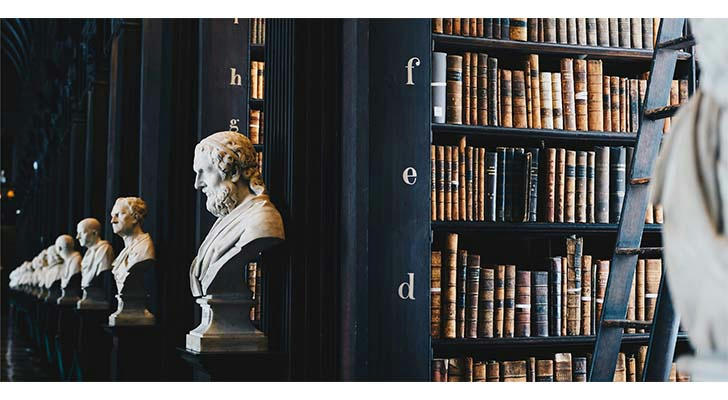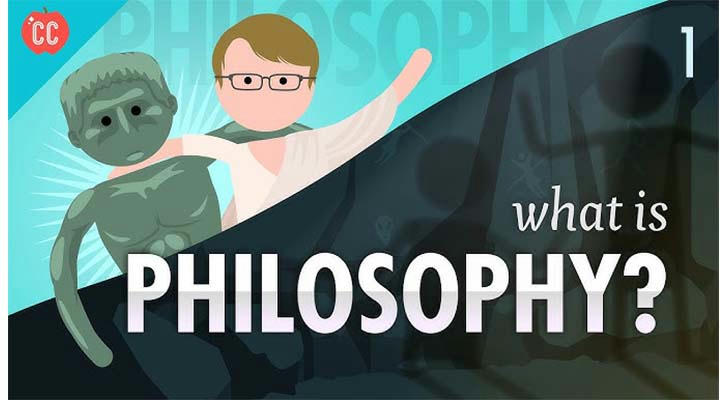Exploration and Reflection in Philosophy
Philosophy, as a treasure trove of human thought, has undergone centuries of development and still holds a significant place in modern society. It is not only concerned with abstract concepts and theories but also with a profound exploration of how we understand the world, life, and its meaning. Through philosophy, we are able to reflect on fundamental issues such as the essence of human existence, the boundaries of morality, the possibility of knowledge, and the ideal form of society. This essay will explore the origins, development, and significance of philosophy in contemporary society.

1. The Origins and History of Philosophy
The origins of philosophy can be traced back to ancient Greece, particularly to the 6th century BCE. Early philosophers such as Thales, Heraclitus, and Pythagoras sought to understand the mysteries of nature through rational thought. Their ideas, such as "Water is the source of all things" and "Everything flows," marked a transition from mythological explanations to rational inquiry. With the emergence of philosophers like Socrates, Plato, and Aristotle, philosophy entered a new phase. These thinkers not only focused on natural phenomena but also delved deeply into ethical, political, and epistemological issues.
Socrates’ famous dictum "Know thyself" became a crucial task for philosophy, emphasizing self-reflection and dialogue as means of attaining knowledge. Plato, through his work The Republic, explored concepts such as justice, government, and social order, discussing the contradiction between ideal and reality. Aristotle, in his Metaphysics, examined existence, causality, and the nature of the real world, laying the foundation for Western philosophy.
Medieval philosophy was more influenced by Christian thought, with figures like Augustine and Thomas Aquinas attempting to reconcile philosophy with religious beliefs, exploring theological issues. However, during the Renaissance and the Enlightenment, philosophy gradually freed itself from religious constraints, and rationalism and empiricism became dominant schools of thought. Philosophers like Descartes, Locke, and Hume proposed revolutionary ideas about knowledge, doubt, and experience, propelling modern philosophy forward.
2. The Main Fields of Philosophy

Philosophy covers an extremely wide range of topics, and it can generally be divided into several main branches:
Metaphysics: This is the fundamental field of philosophy, concerned with the nature of “being” and the essence of the universe. Metaphysical questions include "What is existence?" "How does the world exist?" "What is the relationship between matter and mind?" Metaphysics seeks to answer the most basic questions about reality.
Epistemology: Epistemology concerns the origin, nature, and possibility of knowledge. It explores how we know certain things and how we can determine whether what we know is true. Descartes' "doubt everything" is a classic starting point for epistemology, where he seeks indubitable truths by doubting all.
Ethics: Ethics is the branch of philosophy that studies moral standards and judgments regarding human behavior. It addresses questions like "What is good and evil?" and "How do we make moral judgments?" Various ethical theories, such as utilitarianism, deontology, and virtue ethics, provide different perspectives on how individuals and societies should behave.
Political Philosophy: Political philosophy explores issues related to power, government, law, and social order. It asks questions such as "What is justice?" "What form of social organization is ideal?" "What is the relationship between the individual and the state?" The Republic by Plato and the social contract theories of Locke are key texts in political philosophy.
Aesthetics: Aesthetics is concerned with art, beauty, and the aesthetic experience. It tries to answer questions like "What is beauty?" and "What is the meaning of art?" The core task of aesthetics is to understand the relationship between art and life, and how artworks express emotions and ideas.
3. The Significance of Philosophy in Contemporary Society

In modern society, philosophy continues to have a profound impact. With the rapid development of technology and the increasing complexity of society, philosophy provides a way to think more deeply and rationally about emerging issues. We face new challenges, such as artificial intelligence ethics, environmental protection, and globalization, and philosophical reflection helps us think about these issues in a more thorough and rational way.
For instance, in the discussions surrounding artificial intelligence, philosophers have raised questions such as "Can machines have consciousness?" and "What are the ethical limits of artificial intelligence?" These questions involve the relationship between humans and machines and how to morally navigate the challenges posed by technological advancements. Similarly, globalization has led to cultural diversity and conflict, and philosophical cross-cultural dialogue serves as a bridge for understanding and tolerance between different civilizations.
Philosophy is not merely an abstract academic pursuit; it helps us better understand the world and provides wisdom for personal living. Through philosophical thinking, we can gain a clearer understanding of the meaning of life, find paths to self-fulfillment, and maintain rationality in an increasingly chaotic world.
4. Conclusion
Philosophy is a brilliant jewel of human thought, guiding us to explore the unknown and helping us think more deeply about how to live. Although the progress of time and technology continually changes our ways of life, philosophy, as a tool and method of thinking, remains indispensable for understanding the world and enhancing our wisdom. Whether from ancient great philosophers or contemporary thinkers, their insights continue to provide profound inspiration for our lives. Philosophy is not only an exploration of the world but also a profound reflection on human existence, and it will continue to guide us toward a more rational and wise future.
